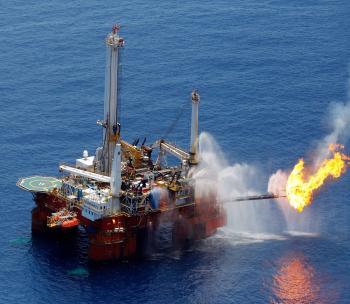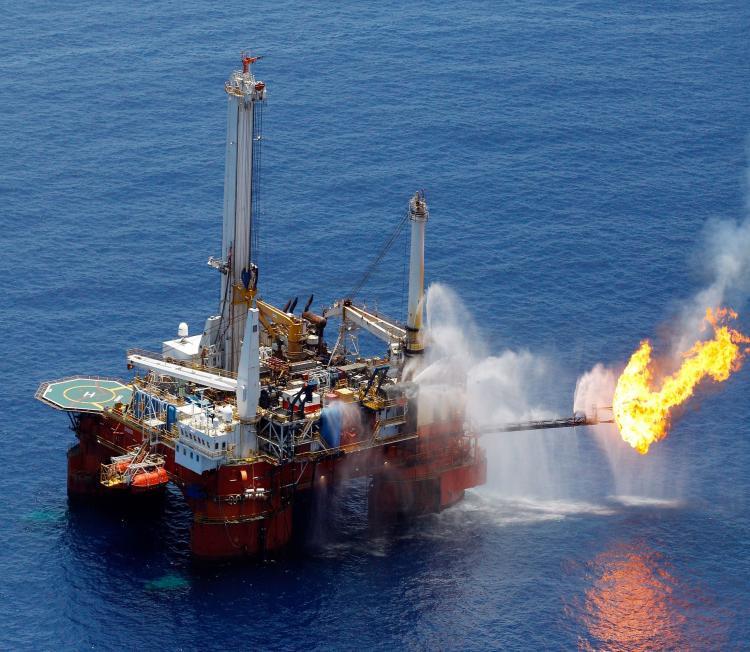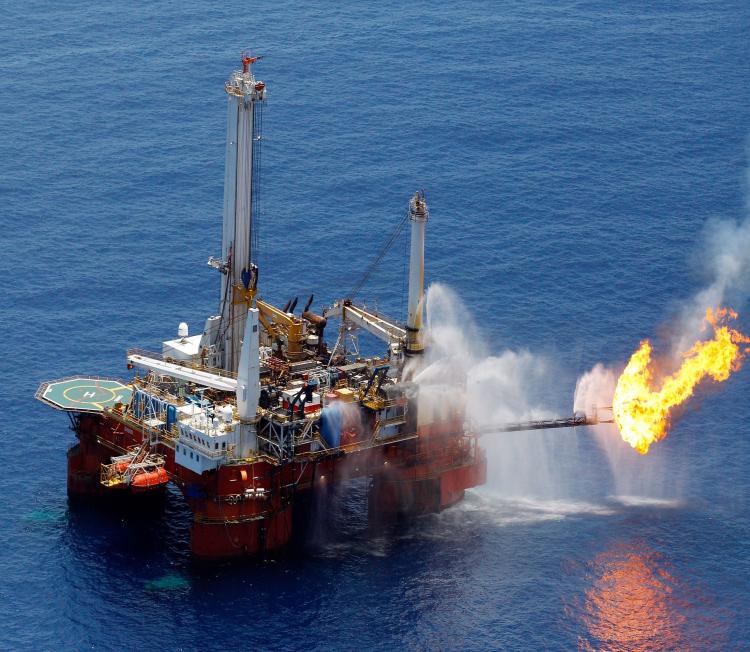Consumer groups and lawmakers are rallying to terminate six existing contracts—worth $2.1 billion—and bar BP Oil International Ltd. from doing business with the U.S. government due to its role in the Gulf of Mexico Deepwater Horizon oil spill.
Citing the ongoing Gulf oil disaster and BP’s history of criminal convictions, Public Citizen, a nonprofit consumer advocacy group, today called on the Department of Defense (DoD) to suspend and ultimately debar BP and its subsidiaries from serving as a federal contractor, and terminate six current contracts.
Boycotting BP Likely Ineffective, Studies Find
Consumer groups and lawmakers are calling for the DoD to suspend and debar BP from serving as a federal contractor.

A drilling platform near the Transocean Discoverer Enterprise drillship burns off gas collected at the BP Deepwater Horizon oil spill. Chris Graythen/Getty Images
|Updated:





